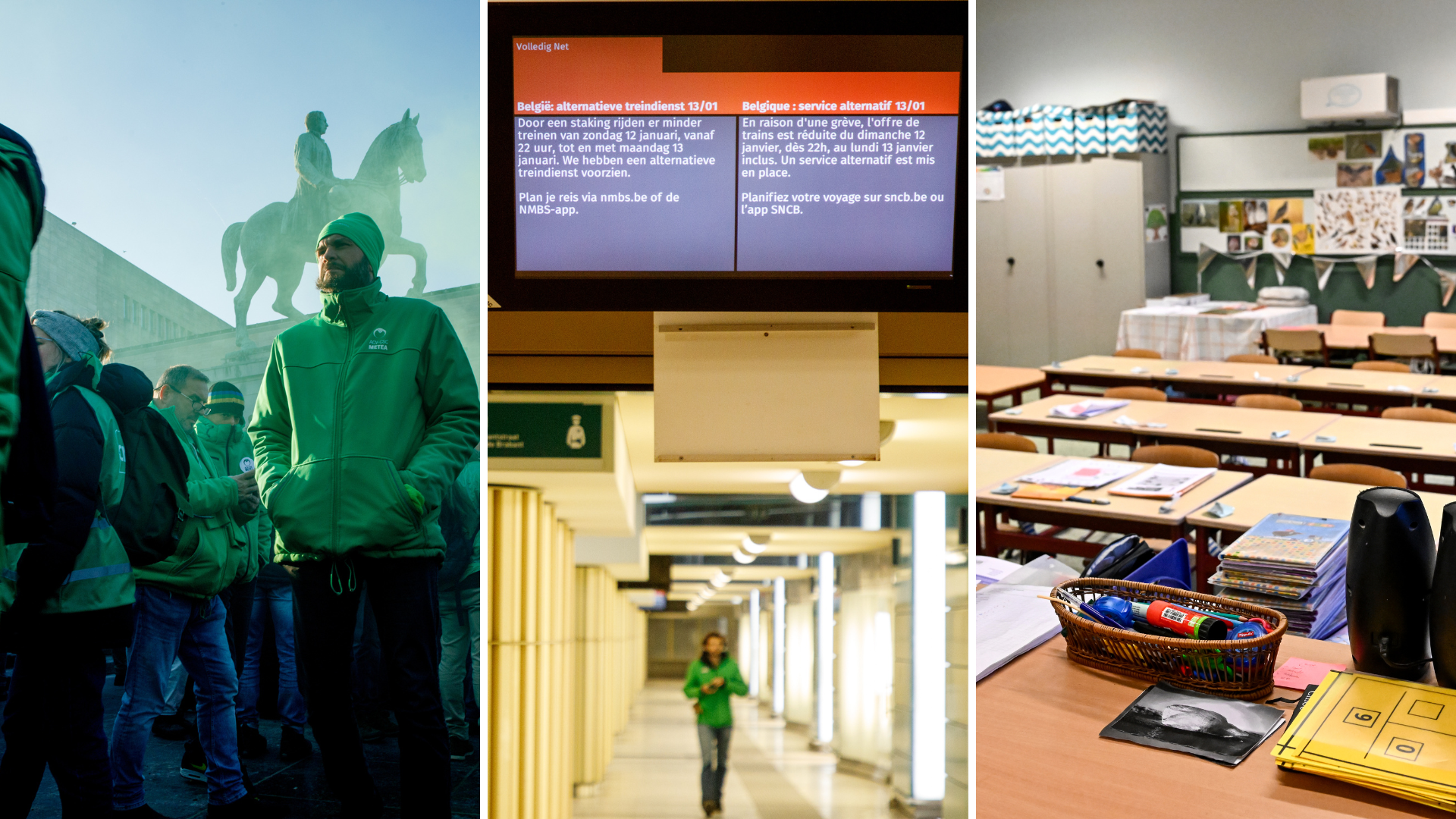Tens of thousands of people working in various sectors took to the streets of Brussels on Monday 13 January to demonstrate against pension reforms being discussed by the Federal Government negotiators. The impact was significant, with public transport disrupted, planes grounded and cancelled classes.
The joint union front called on workers in various sectors, from education and transport to prisons and the military, to take to the streets of Brussels on Monday. Some 30,000 people responded to the call.
Unions said the pension reform discussed by the 'Arizona' parties' negotiators would be an unprecedented step backwards. They warned of lower pensions, less favourable conditions and longer careers.
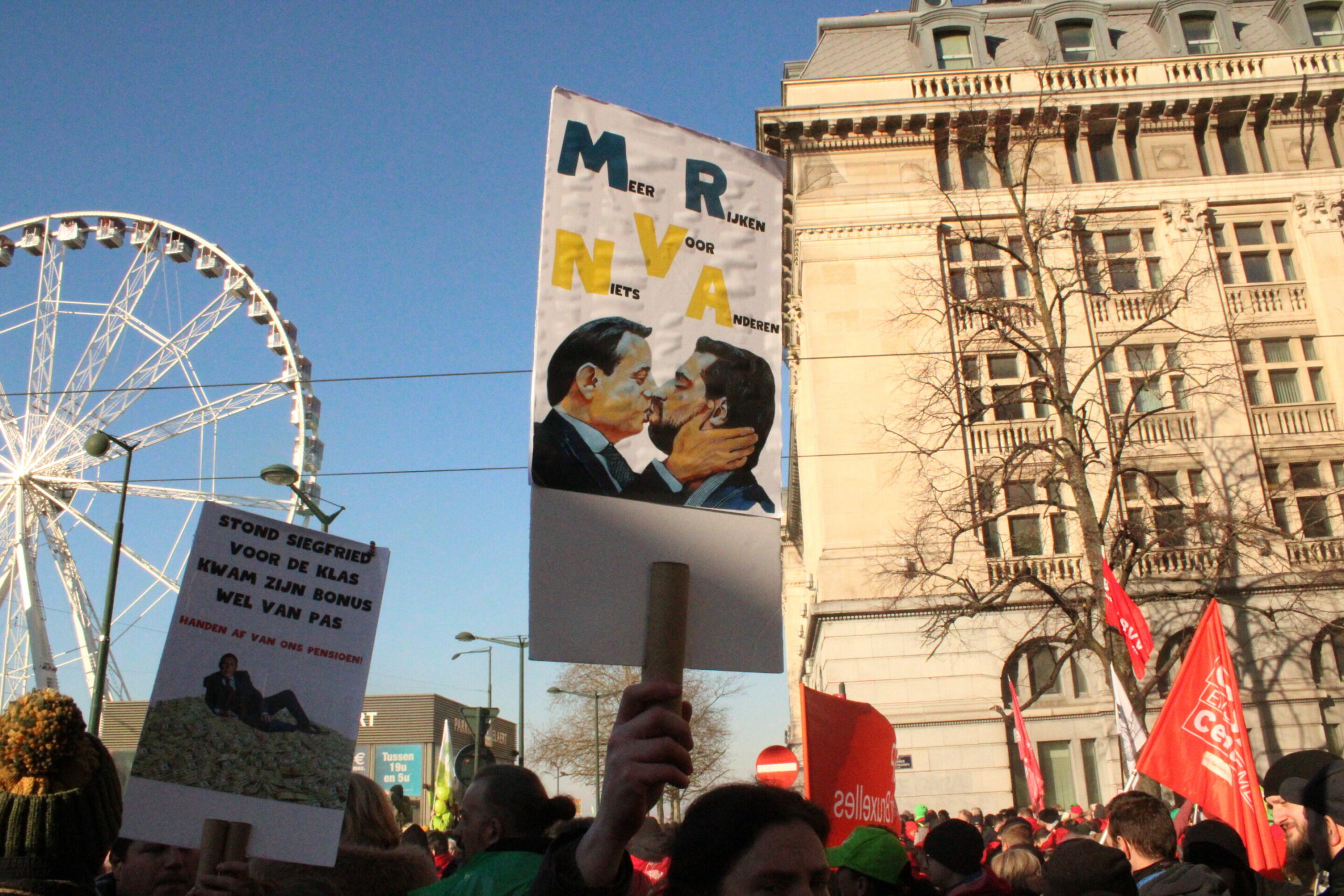
Protesters holding up banners with right-wing N-VA leader Bart De Wever and liberal MR leader Georges-Louis Bouchez kissing, and the words 'More rich people, nothing for others'. Credit: The Brussels Times
Travel disruption
As predicted, the nationwide strike had a major impact on travel. In Brussels, just one metro was running, and most buses and trams were cancelled. Across the country, train services were limited.
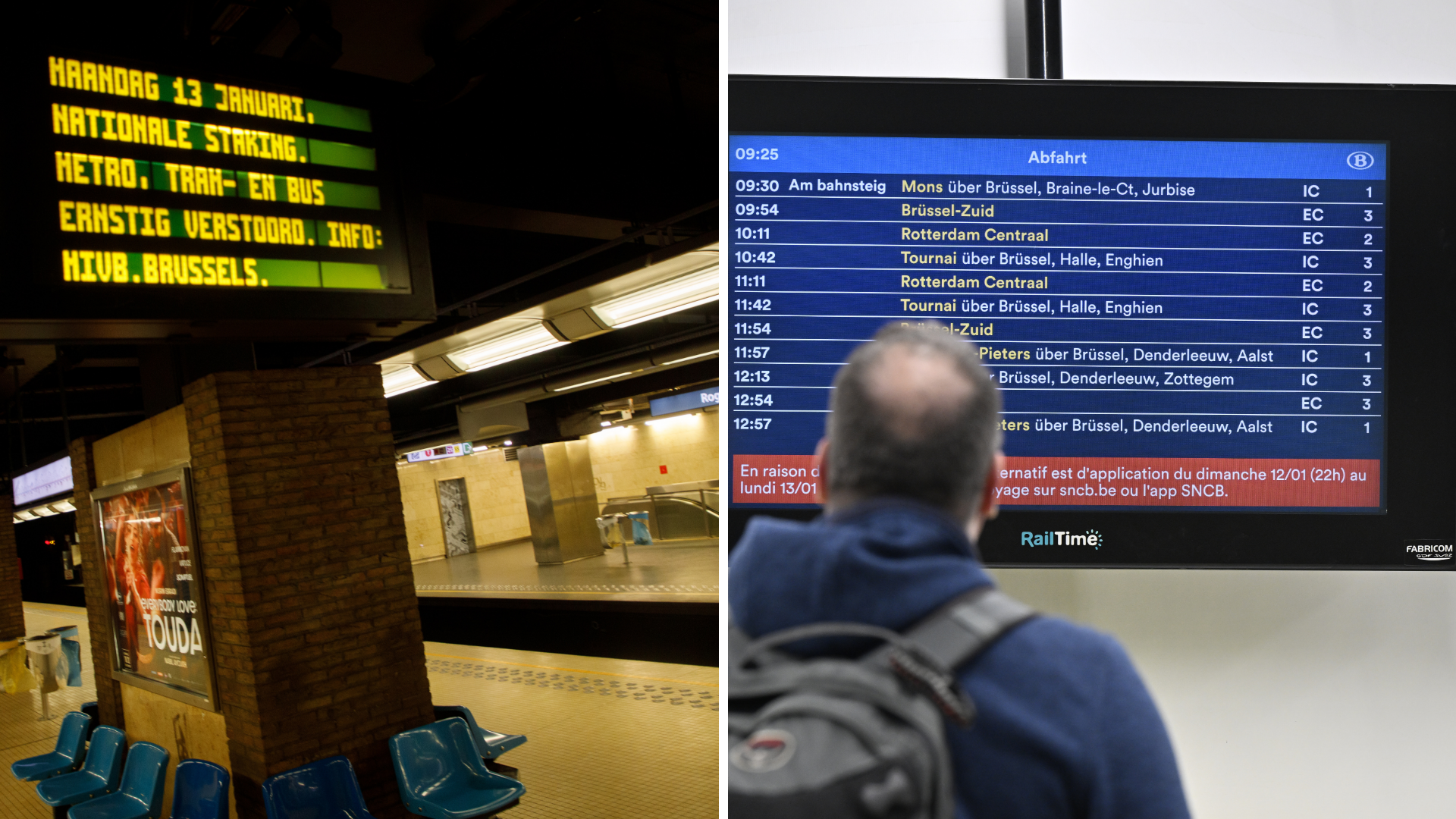
SNCB screens informing passengers of the strike and cancellations. Credit: Belga
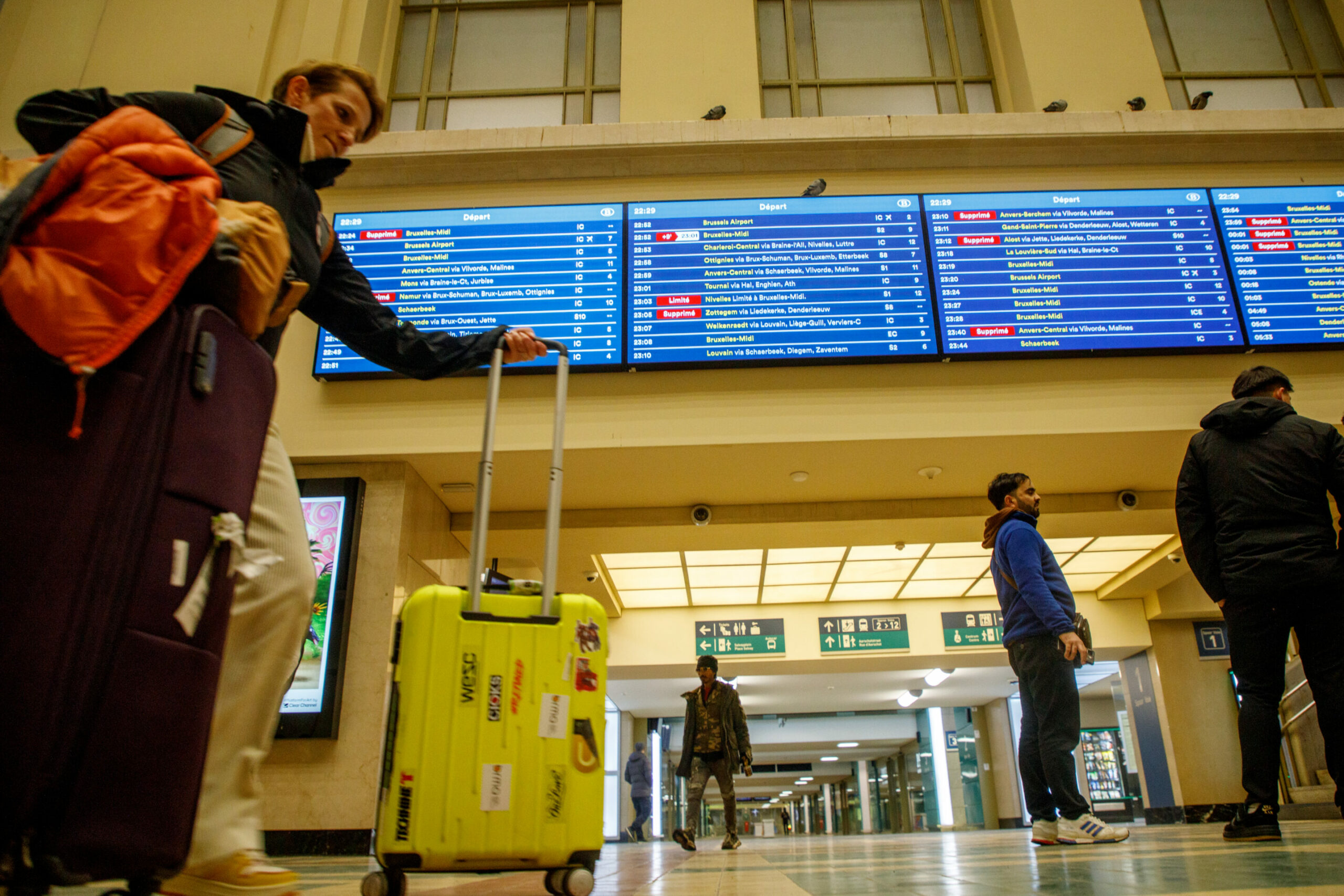
Passenger pictured in the hall of the Brussels-North railway station during the strike on 13 January. Credit: Belga / Hatim Kaghat
Air traffic was also affected. Early in the morning, at Brussels Airport in Zaventem, at least four in ten flights were cancelled. Other flights went ahead, albeit with some delays. The atmosphere at the airport was calm. Most of the affected people stayed at home, but there were some stranded passengers.
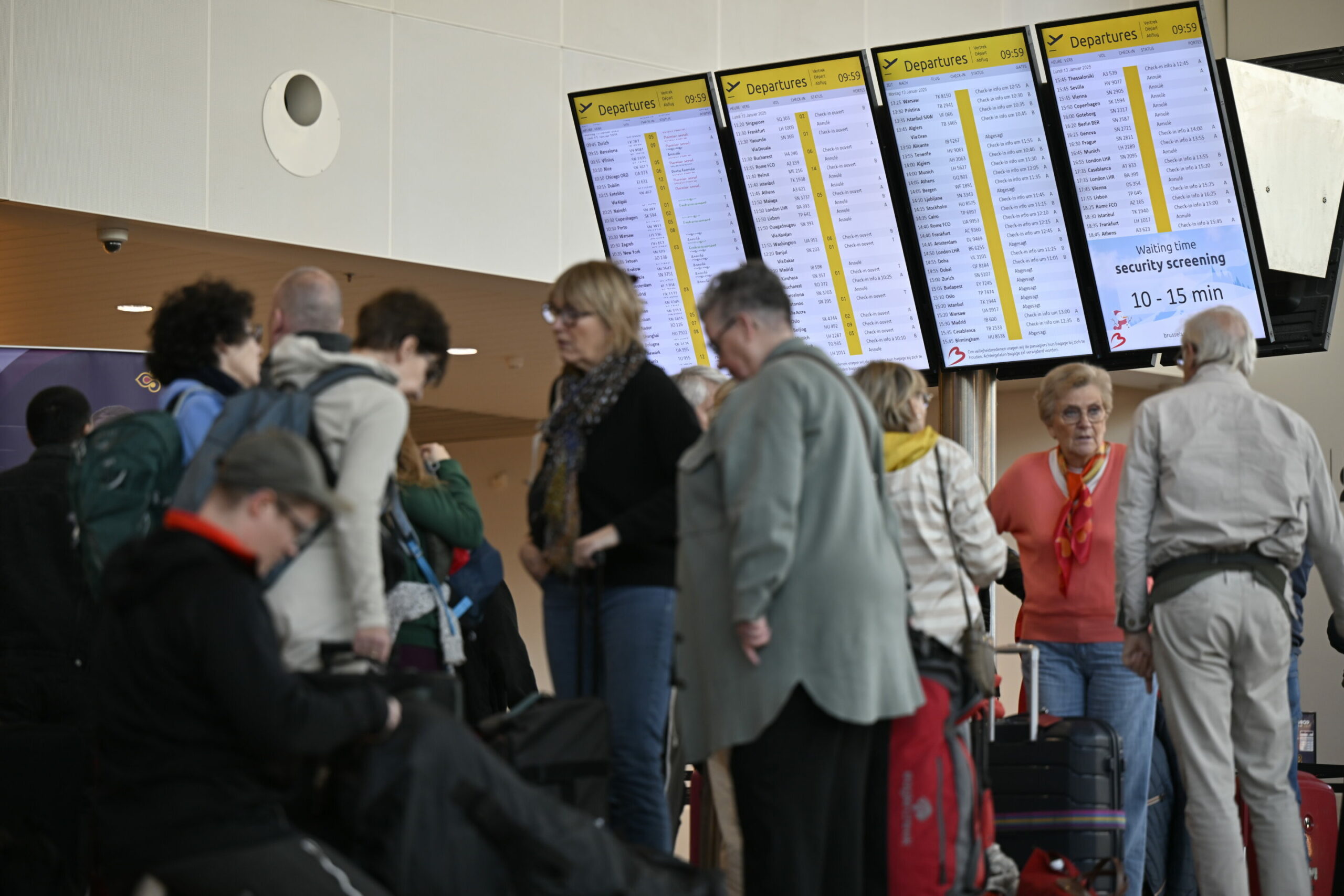
Passengers pictured during a strike at Brussels Airport on Monday 13 January. Credit: Belga / Eric Lalmand
Charleroi Airport was taken by surprise by the shortage of staff from the external security provider. By mid-morning, it confirmed it was cancelling all departing flights from noon.
Empty schools
Many classrooms across the country remained empty on Monday. In Flanders, almost 35,000 teachers went on strike, of whom 25,000 also took part in the protest action in Brussels. According to unions, this is a historically high number.
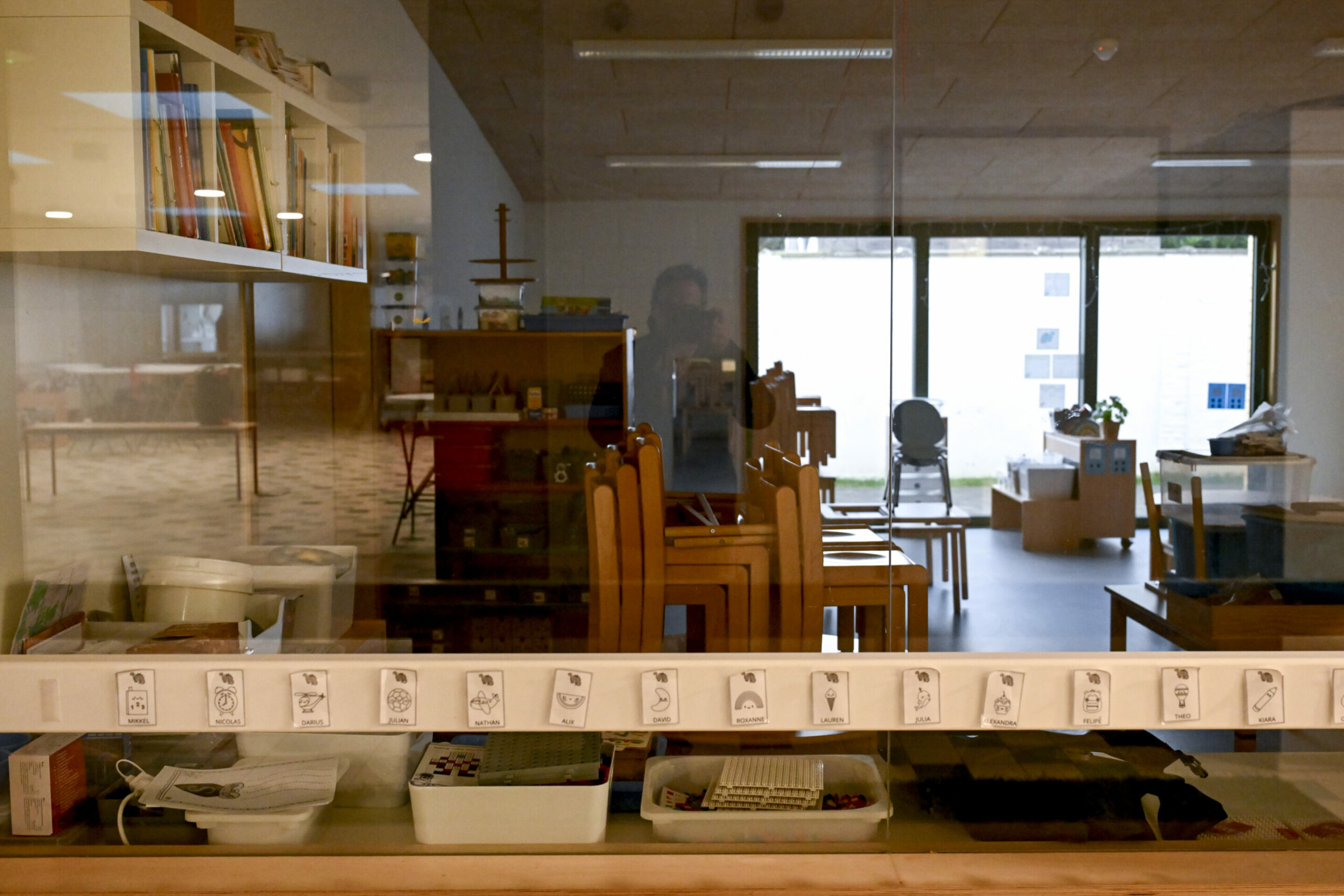
An empty classroom due to a teacher strike in Antwerp on Monday 13 January. Credit: Belga / Dirk Waem
Primary schools were the hardest hit: in many, classes were cancelled or distance learning was put in place. In some schools, staff turnout was so low that they remained shut all day. In secondary schools, many classes continued as usual or distance learning was implemented.
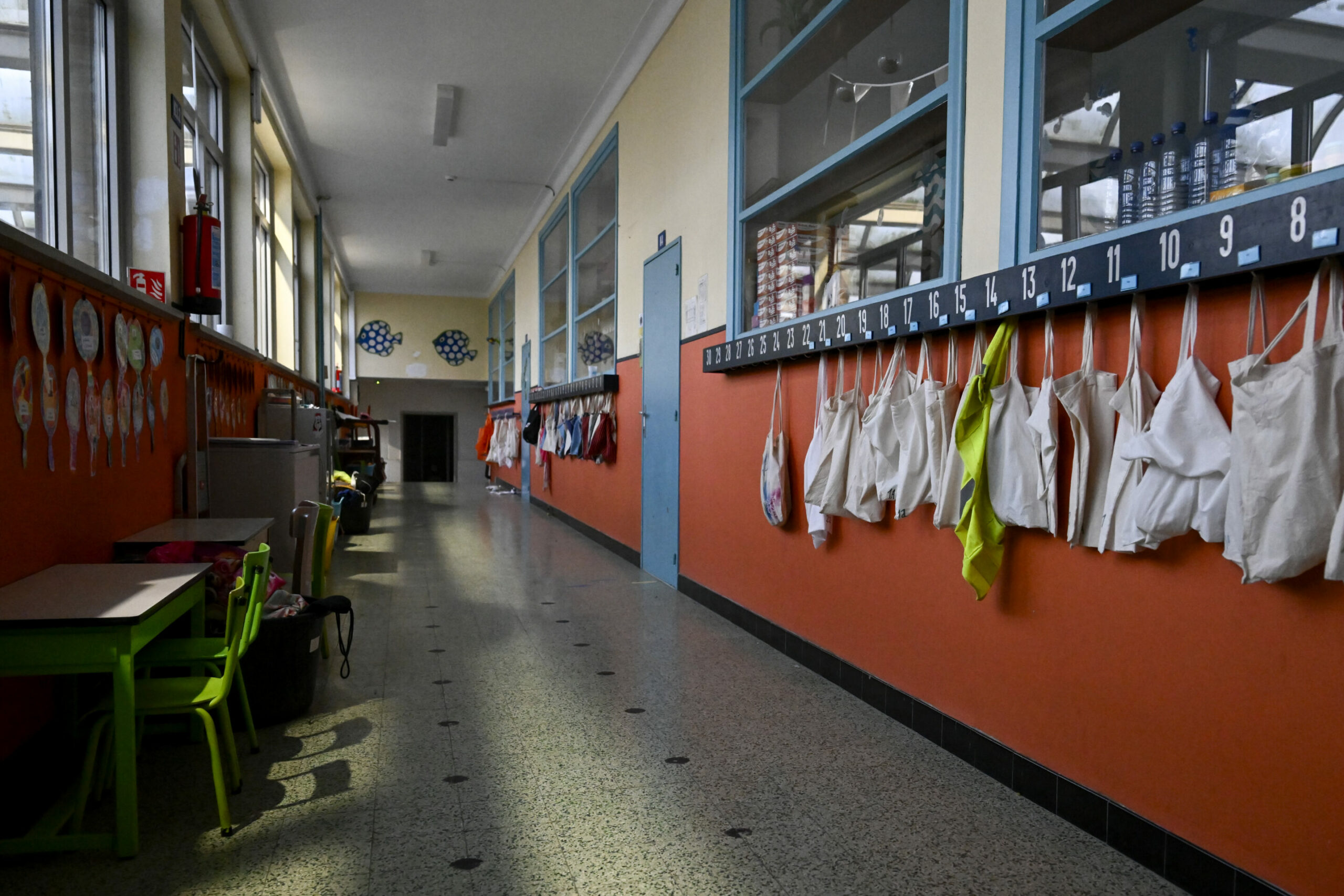
An empty school corridor in Antwerp during the strike on 13 January 2025. Credit: Belga / Dirk Waem
Making voices heard
The demonstration started next to Brussels Central railway station. Activists dressed in red, blue and green (representing their union colours) and soon started to gather on Place Albertine in the winter sunshine.
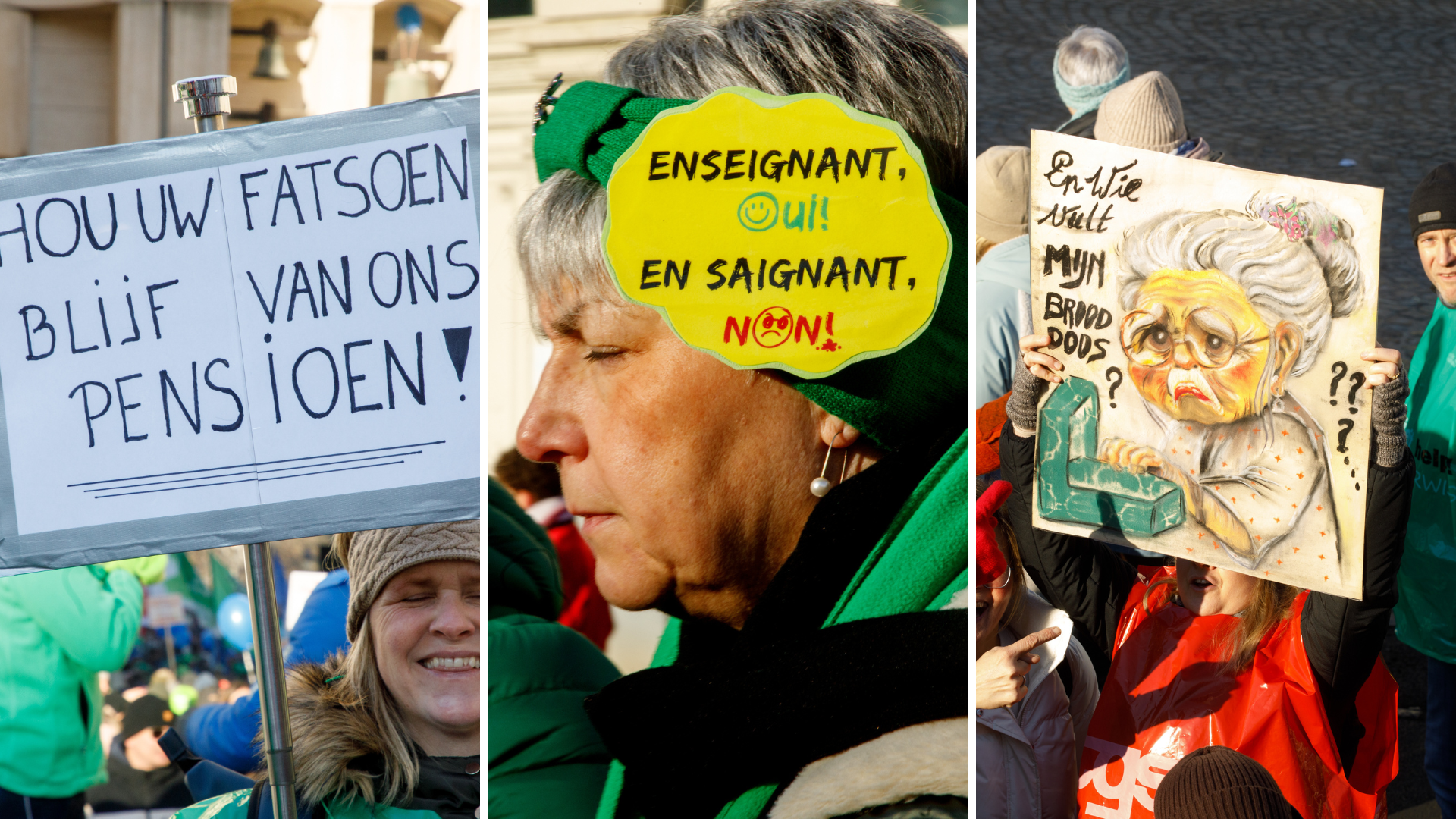
Protesting teachers holding up signs with messages expressing their discontent. Credit: Belga
A victim of its own success, the demonstration set off 30 minutes behind schedule. Many participants were stuck in traffic and not able to make it for the original departing time of 10:00. Despite the blisteringly cold weather, the march set off in a festive atmosphere, accompanied by firecrackers and fireworks.
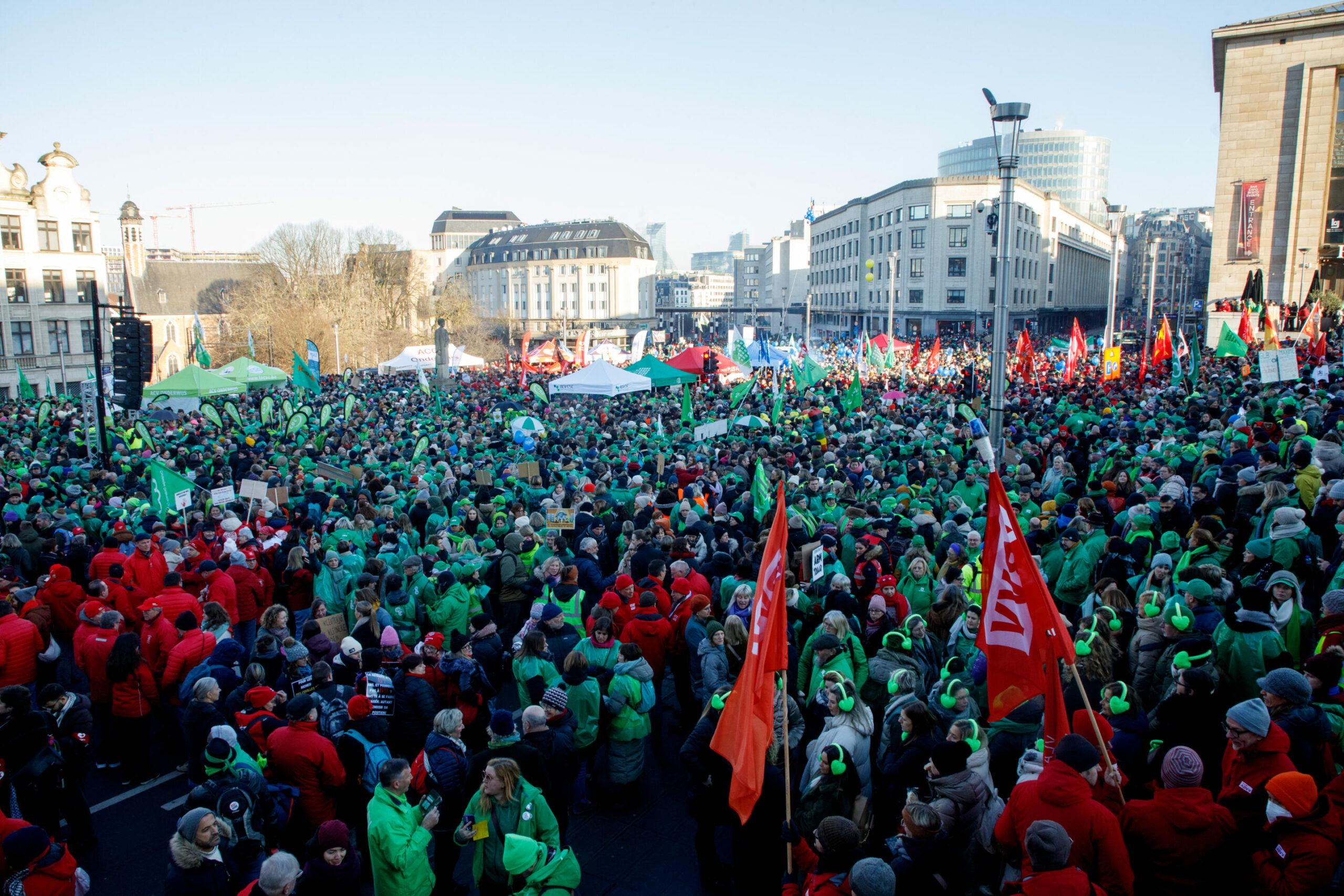
Protesters gathering on Place Albertine on Monday 13 January. Credit: Belga / Hatim Kaghat
More than 30,000 took to the streets, led by some 100 firefighters. The vast majority of the demonstrators were Flemish teaching staff.
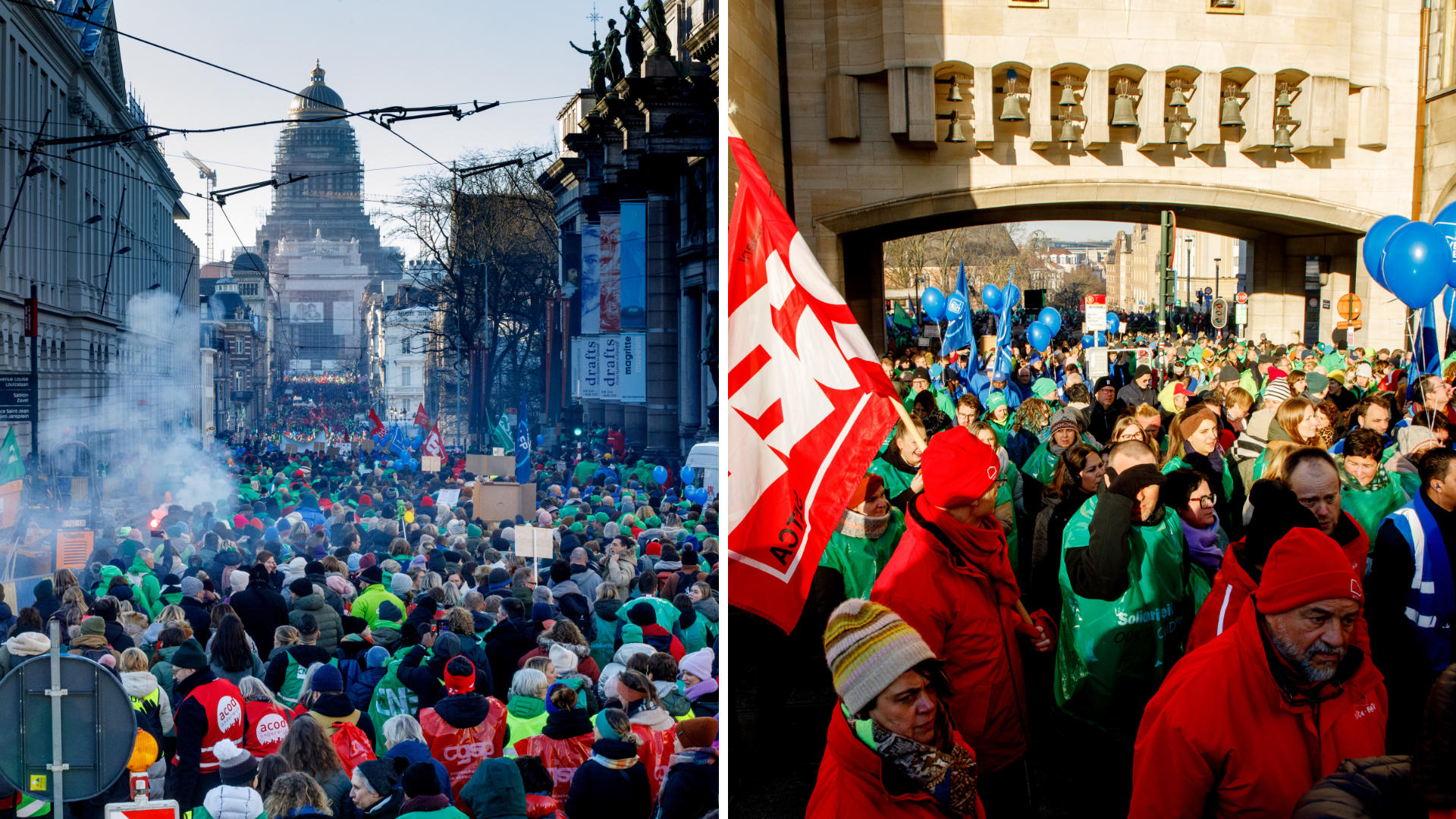
Marching demonstrators. Credit: Belga
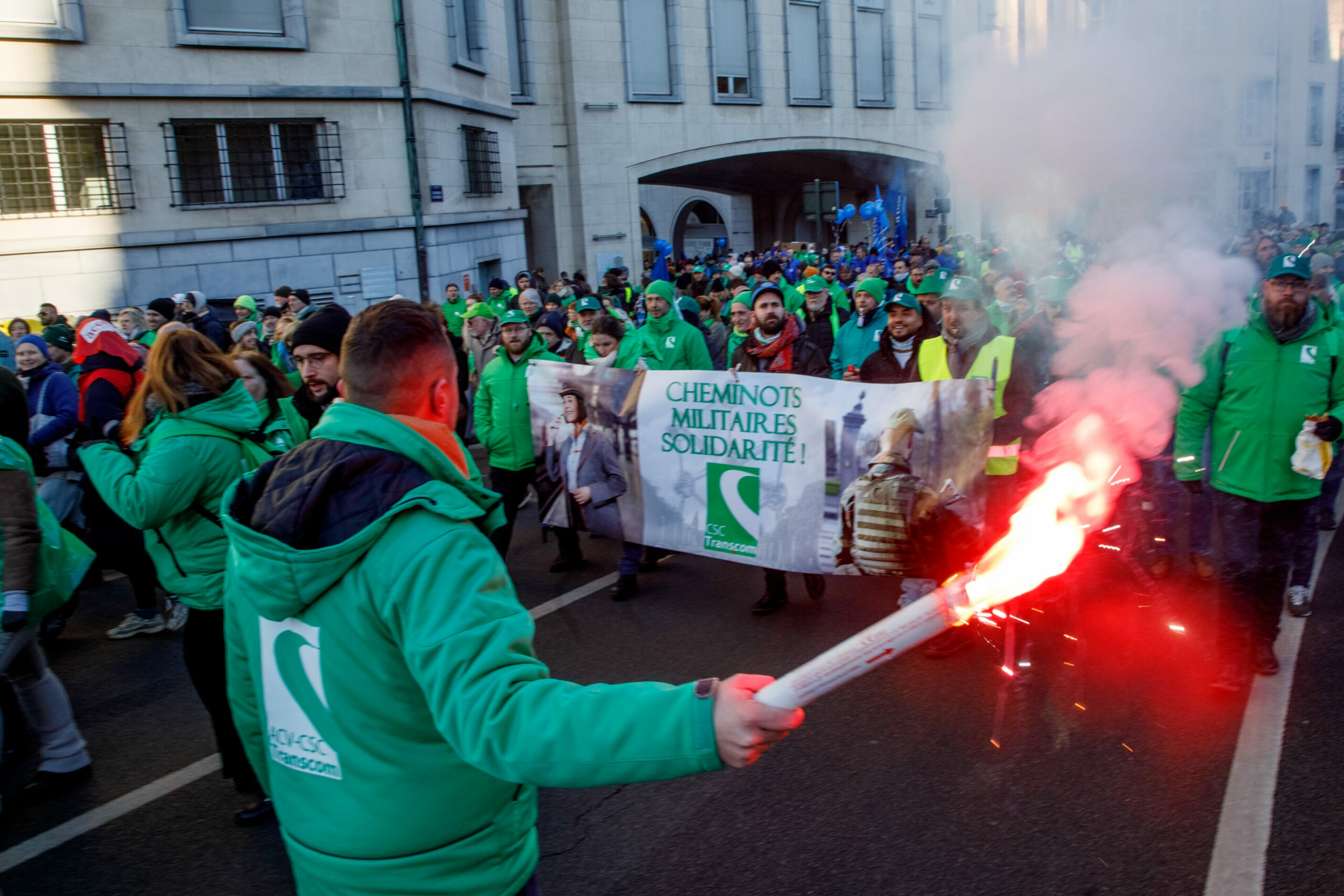
Credit: Belga / Hatim Kaghat
At Place Poelaert – the protest's final destination – five people spoke about their working conditions. They emphasised the risks to their future careers that could result from the decisions taken during the Federal Government negotiations.
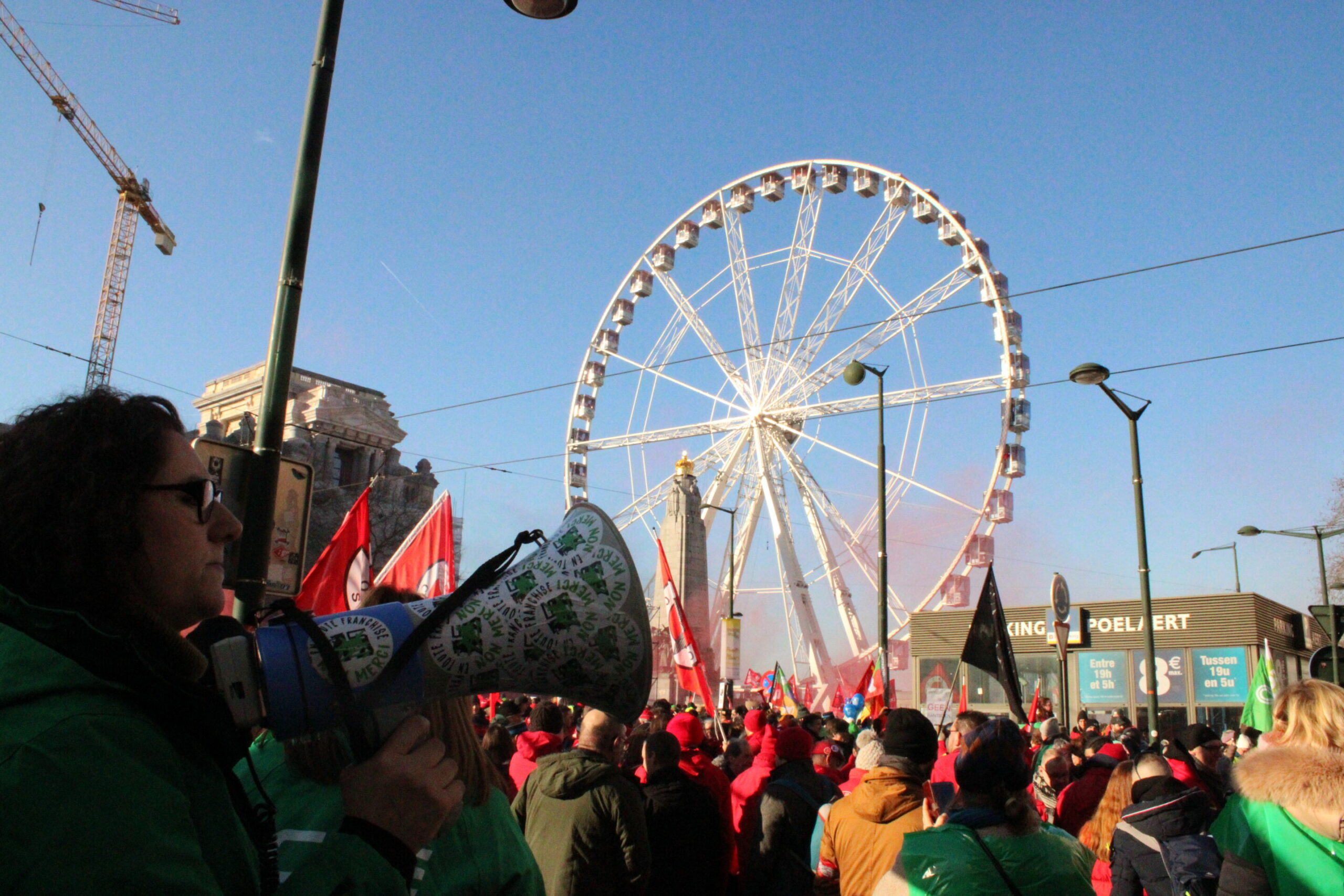
Demonstrators at Place Poelaert. Credit: The Brussels Times
The demonstration ended at around 12:30. While the majority of the demonstration went without issues, an incident was reported between firefighters and police, in which four officers were slightly injured.
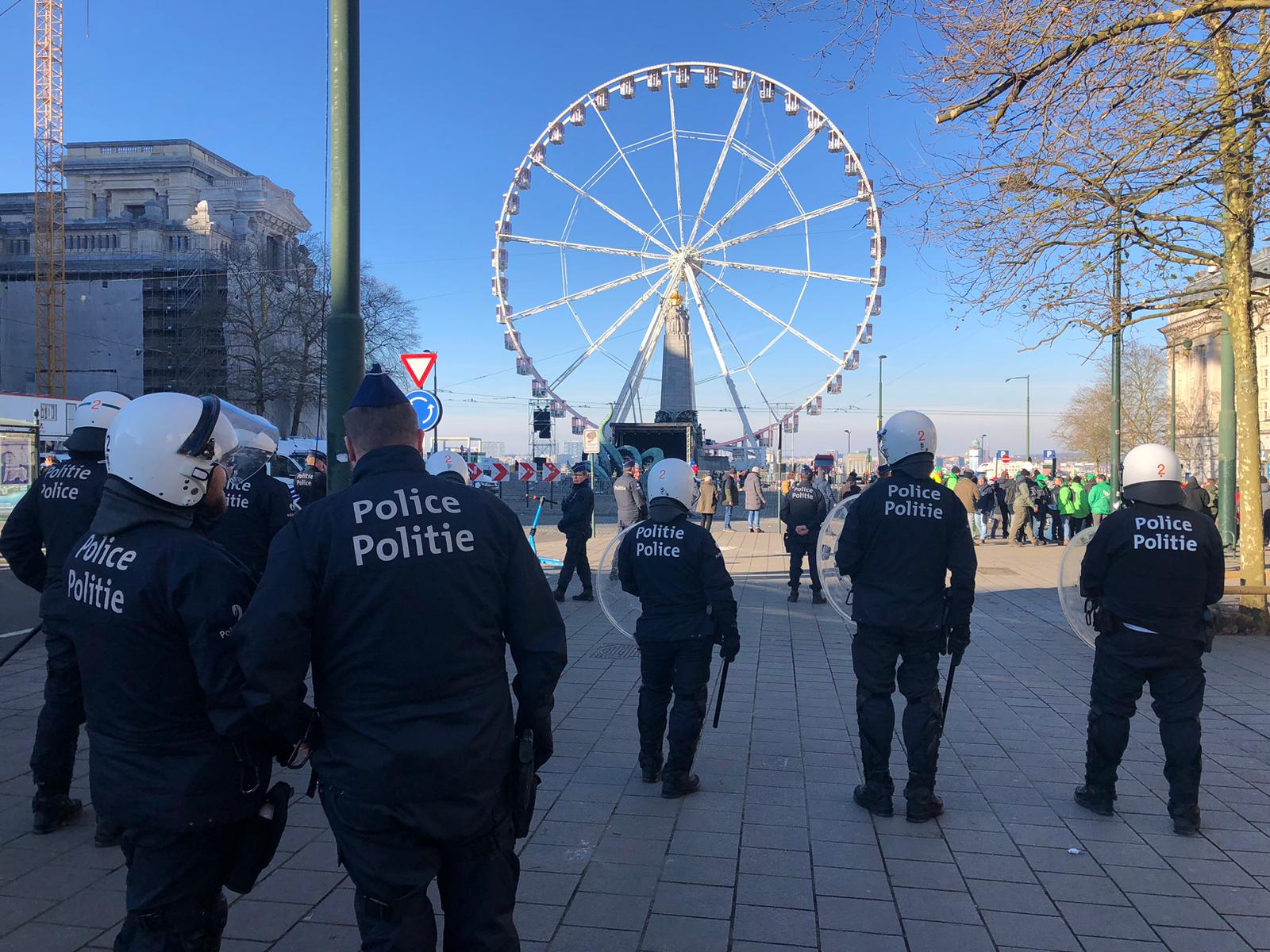
Credit: The Brussels Times
As the demonstration came to a close, the president of the socialist trade union federation ABVV-FGTB Thierry Bodson warned that a federal committee would be convened as soon as a government agreement is confirmed.
"We'll be stepping up a gear, and that may even mean a general strike if we want to be heard," he said. In the meantime, the date for the next demonstration has been set for Brussels on 13 February. The focus of the next action will be defending public services.

